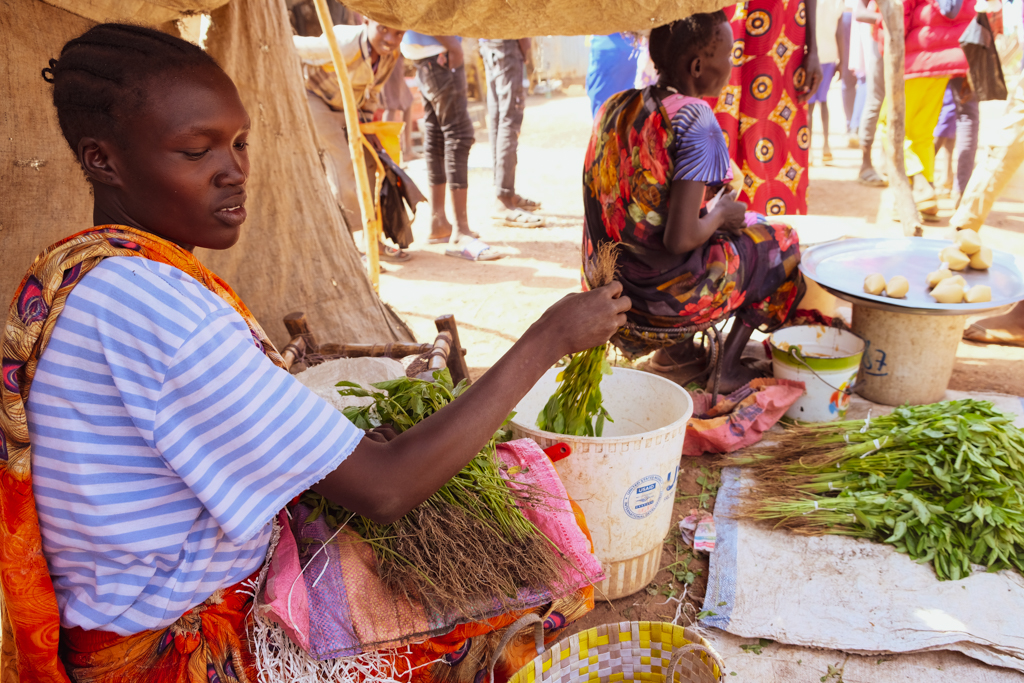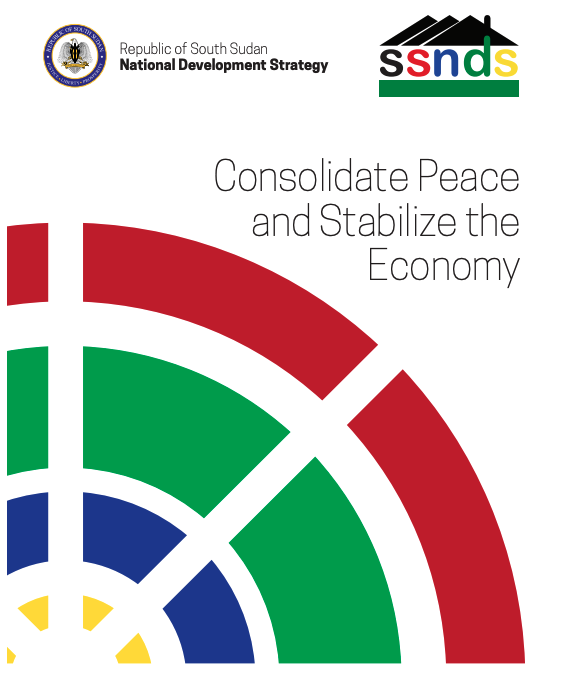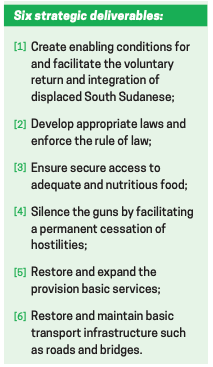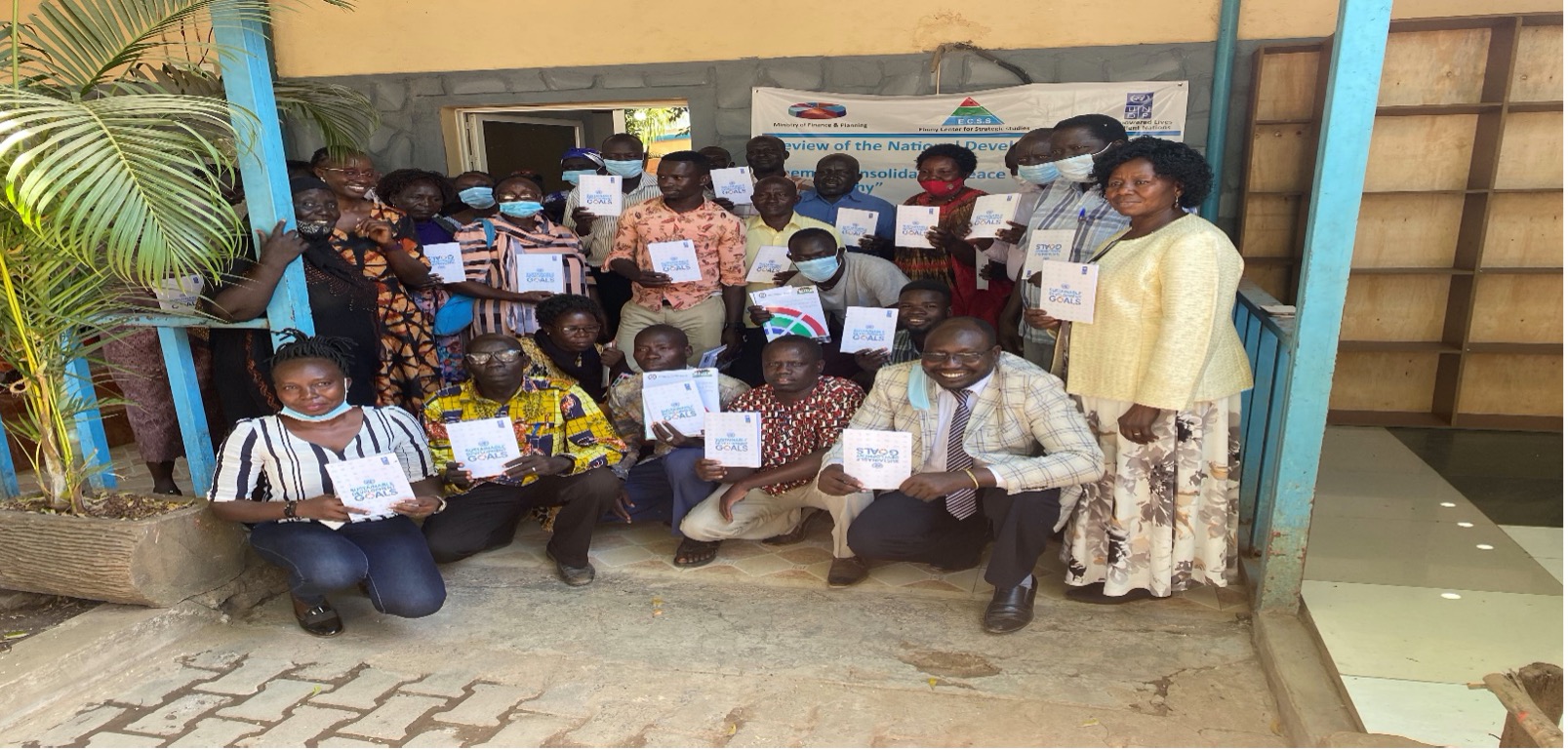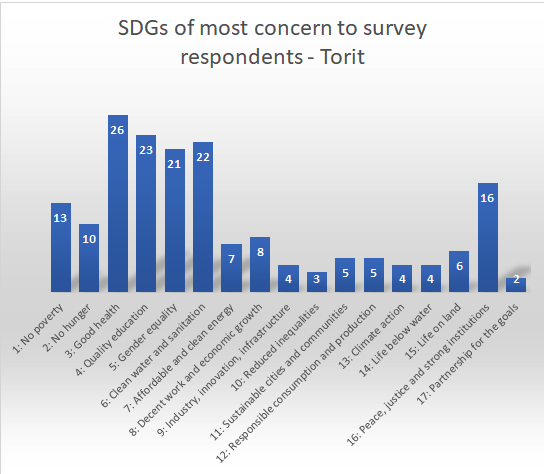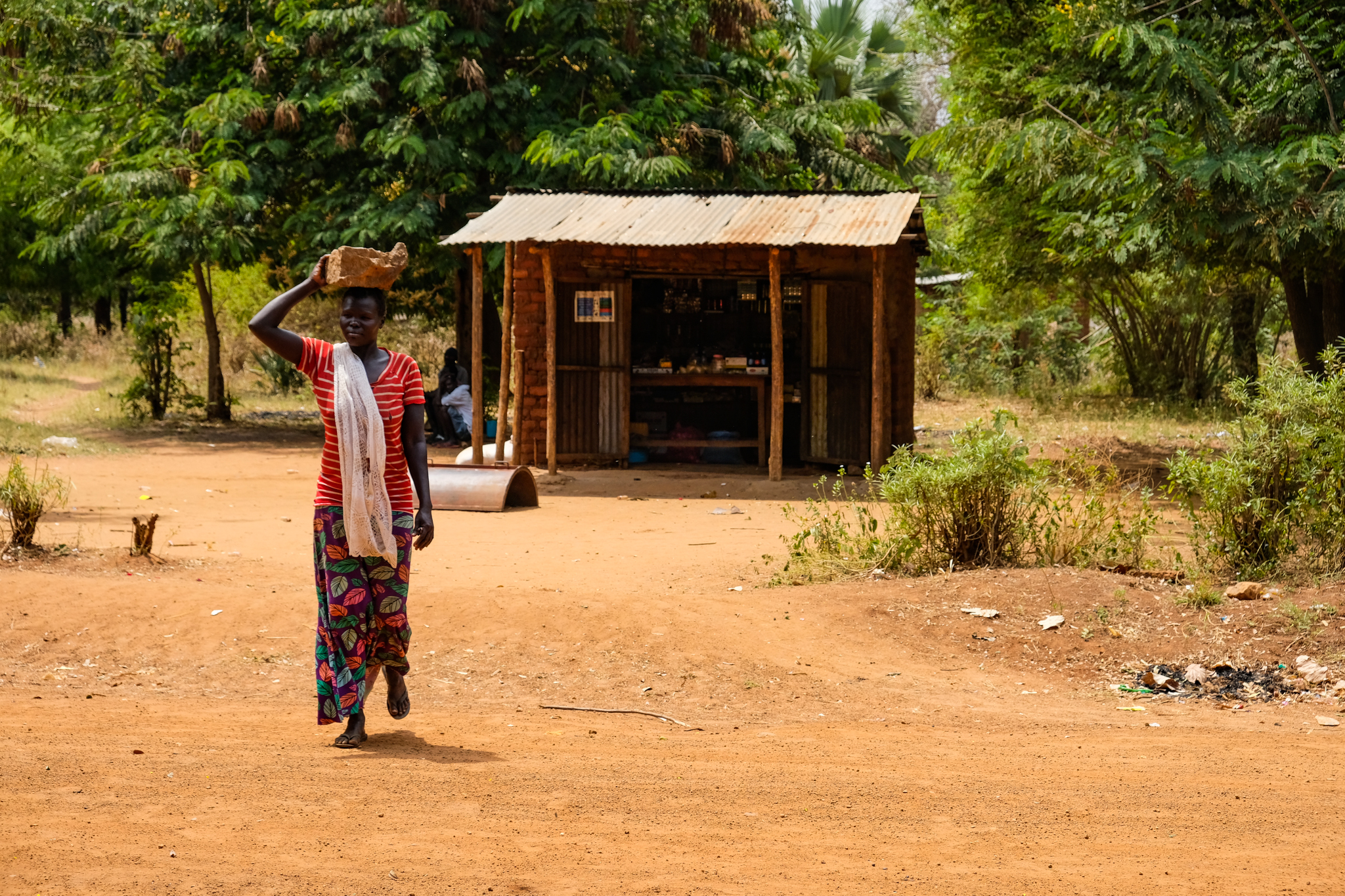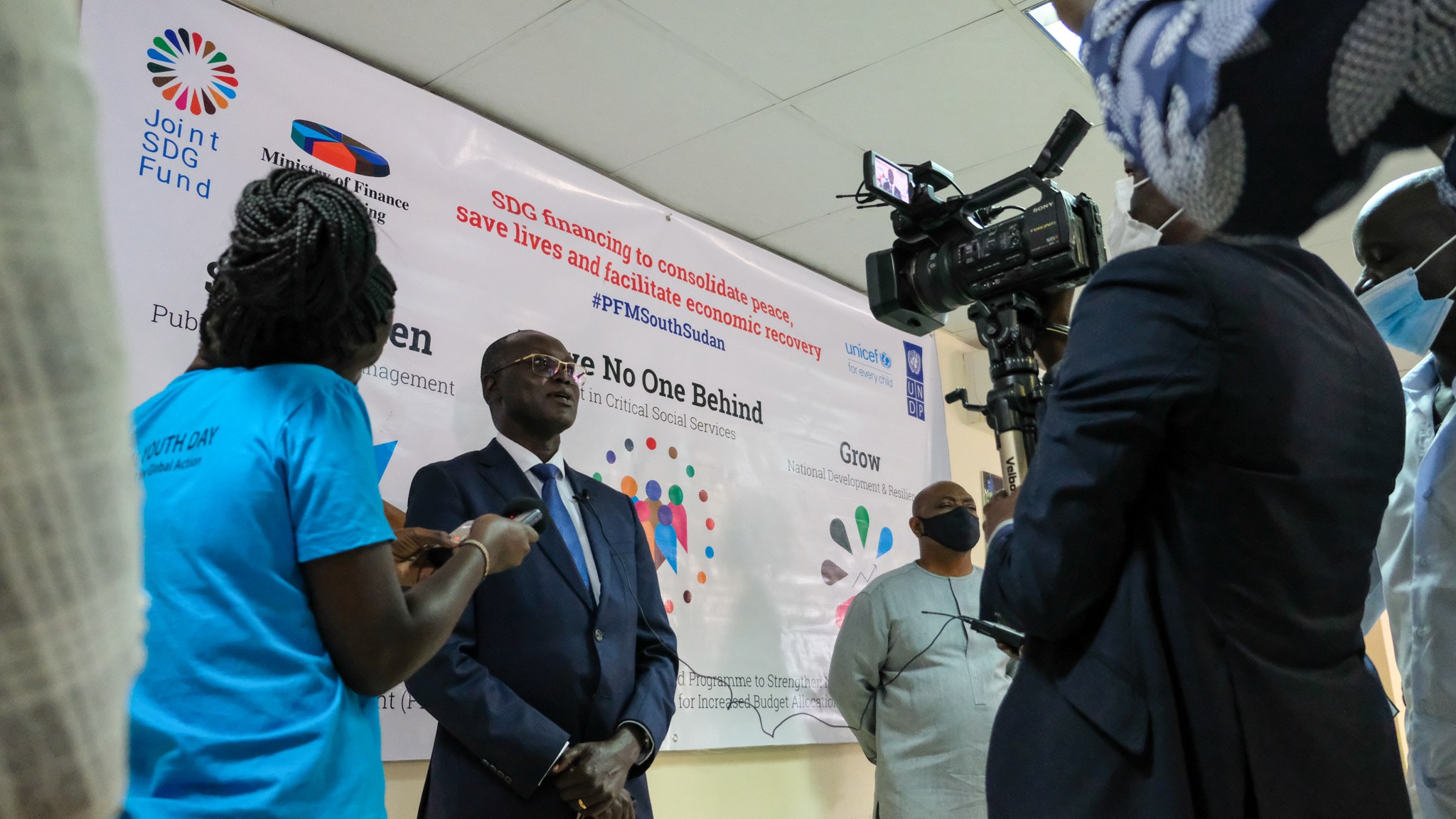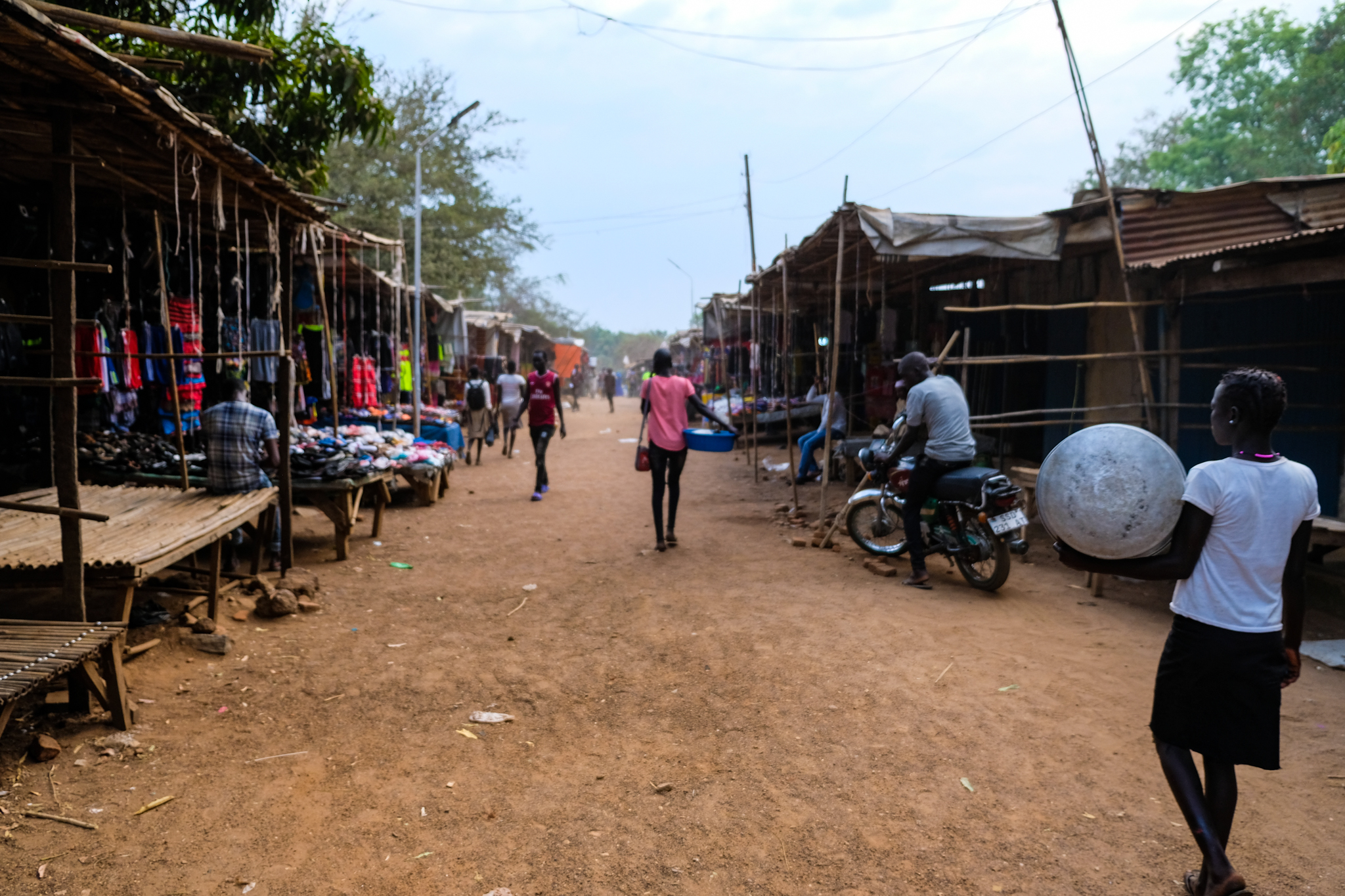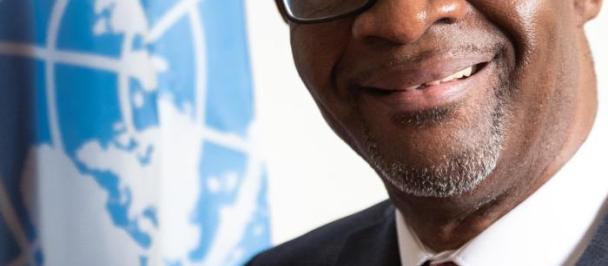A vendor in a market outside of Aweil town. Photo: UNDP
Is development improving the lives of people in your state?
Do national priorities for development reflect your own?
What areas do you want to see added to a national strategy for development in South Sudan?
These questions and more are informing state-level inclusive and participatory sessions to gain feedback on the direction of South Sudan’s development agenda. The South Sudan National Development Strategy 2018-2021 is being reviewed. This review is required by Chapter IV of the Revitalized Agreement for Resolution of Conflict in the Republic of South Sudan (R-ARCSS).
South Sudan's National Development Strategy 2018-2021, currently under review. Photo: UNDP
Based on the principles of human development – or the human development approach – South Sudan’s current National Development Strategy (NDS) focuses on improving the lives of people.
But where to start? The measurements of success of the current NDS cover three critical aspects:
- People feel safe to go about their business (daily activities), including freedom of movement;
- People enjoy stable prices, including food, currency (foreign exchange rate), and labor;
- People have access to improved basic services.
The NDS was conceptualized as a three-year national planning document, with an implementation period concluding in June 2021. Launched by the Ministry of Finance and Planning in July 2018, the development context has changed significantly since the last NDS was developed. Since that time, a new peace agreement was signed; the National Dialogue held; and the socio-economic impact of coronavirus and corresponding global economic slowdown has affected the national economy.
UNDP South Sudan’s Resident Representative Samuel Doe recently highlighted the South Sudan NDS review process on Radio Miraya FM:
“There is an opportunity to actualize South Sudan's potential and turn it into reality. The National Development Strategy review is the place to begin, as it ensures there is a platform for national development that is agreed upon by mobilizing citizens of South Sudan,” said Dr. Doe. “This conversation is now taking place under the leadership of the Ministry of Finance. Once [citizens’] priorities are chosen and set, UNDP will commit itself to the development agenda of the people of South Sudan.”
The strategic deliverables of the current National Development Strategy.
Gathering Feedback from Diverse Constituencies
Led by the Ministry of Finance and Planning's National Development Strategy Secretariat, the Ebony Center for Strategic Studies, UNDP, and other partners, are gathering stakeholder inputs on the status, suitability and future of the NDS. UNDP is supporting integration of the Sustainable Development Goals (SDGs) into the national framework, supporting the development of an Integrated National Financing Framework, and in collaboration with other UN agencies ensuring gender mainstreaming of the NDS. The NDS review is being informed by an updated fragility assessment conducted with national stakeholders to determine steps for undertaking development initiatives where instability and conflict persist.
The review teams are soliciting feedback from people in key areas:
- Do you agree with the overall objectives of the NDS? If not, what would you like to be added or removed?
- Do you think that the NDS is the most appropriate medium-term framework for achieving sustainable peace, economic growth, and poverty reduction in South Sudan?
- Do you think the number of clusters of NDS are: a) many, b) few, or c) enough as is?
- Are there missing areas in each of the four clusters (Governance, Economic, Social Service and cross-cutting issues) that you would like to be included in the priorities of the NDS?
- How would you want to see the NDS harmonized with the R-ARCSS?
The state-level consultations are targeting ten constituency-based groups in each of South Sudan’s ten states. This includes women, youth, people with disabilities, farmers, traders, teachers, traditional authorities, faith-based organizations, organized forces and political parties. Consultations have also included civil society, such as professional associations and media. Two state-level consultations, for Jonglei and Upper Nile, were held in Juba due to environmental and security reasons.
Participants of an NDS consultation in Torit, Eastern Equatoria. Photo: UNDP
Eastern Equatoria State consultations, held in Torit, featured frank discussions on the slow progress made, if any, in South Sudan on the achievement of the SDGs during the implementation period of the NDS 2018-2021. The Eastern Equatoria State Secretary General, representing the Governor, highlighted the importance of short- and medium-term plans to guide the journey of South Sudan’s development vision. Those consulted called for increased efforts on the Global Goals going forward.
Through a UNDP administered survey, those consulted in Torit identified the Sustainable Development Goals which are of immediate concern to themselves and their family. The SDGs that were most frequently cited by the participants in Torit were SDG 3: Good Health; SDG 4: Quality Education; SDG 6: Clean water and sanitation; and SDG 5: Gender Equality. SDG 16: Peace, justice and strong institutions was also frequently cited.
UNDP will continue to gather survey responses from constituents across the country on their priority SDGs. This is an important part of the NDS review, as the final Strategy should propel the country toward achieving the SDGs.
A woman business owner, trained by UNDP, carries supplies in Hillieu County outside of Torit in Eastern Equatoria. Photo: UNDP
Holistic Citizen-Driven Development Pathways
Participation and viewpoints surfaced during state-level consultations will feed into additional reviews at cluster level, according to the four clusters of the NDS (governance, economic, social service, and cross cutting). The clusters of the NDS will attempt to harmonize their priorities with the five clusters of the R-ARCSS as well as the four clusters of the recently-completed National Dialogue process.
In addition to supporting the NDS consultations, UNDP is implementing the United Nations Joint Sustainable Development Goals (SDG) Fund Programme to strengthen national and subnational Public Financial Management (PFM) mechanisms in South Sudan, together with the United Nations Resident Coordinator’s Office and UNICEF.
Minister of Finance and Planning H.E. Athian Ding Athian speaks at the launch of the Joint SDG Fund Programme in September 2020. Photo: UNDP
A major focus of the PFM joint programme is to increase budget allocation to social services, which speaks directly to the third pillar of the NDS, to improve access to quality basic services.
“The Joint Programme will contribute to the realization of the South Sudan National Development Strategy which calls for intensifying non-oil revenue mobilization, as well as to operationalize institutional mechanisms to promote citizen engagement and participation, as critical pathways to sustainable development,” said Minister of Finance and Planning H.E. Athian Ding Athian, at the launch of the Joint SDG Fund Programme last year.
As has been noted by those consulted during the NDS review, implementation of the Strategy has not been observed by the people of South Sudan. With support from the Joint SDG Fund, UNDP is therefore incorporating dialogues about financing for the Sustainable Development Goals in the NDS review. Having a clear understanding of the resources required to fund such a mid-term development framework is an essential step toward operationalizing and implementing the plan.
A market in Torit town, Eastern Equatoria, South Sudan. Photo: UNDP

 Locations
Locations